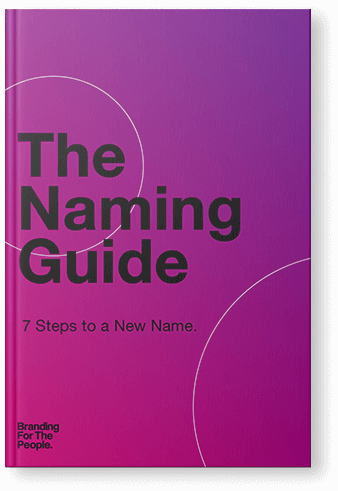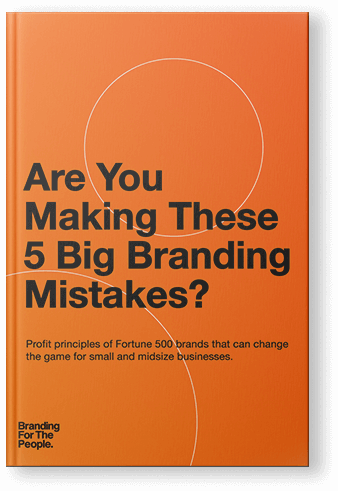When do you “fire” a client? This article may generate excitement or it may piss some people off. It might initiate a healthy discussion on this topic, especially if you’re a service-based professional.
Either way, my singular intention is to empower you, if you’ve ever felt “trapped” with a client or if a client has ever mistreated you.
Very early on when I started my business, I heard a mindset expert say (and, I’m paraphrasing): “You have to let go of something of a lesser nature in order to allow for something of a higher nature to come into your life.”
If you’re anything like me, you started your business because it was a choice. It was a decision that you made because you wanted to be in control of your life, make money on your terms, or make a difference with people.
But, that doesn’t mean that everyone is meant to be your client. Your clients are also a choice. The same way your clients are choosing to work with you, you are choosing to work with your clients.
I would argue that you didn’t start your business to serve people who don’t value, respect, or appreciate you and your talents.
Which bring me to the question: When do you “fire” a client?
I can respond on three levels:
1. When the client is not aligned with your brand.
What do I mean by this? If you think about the brands you love and respect, it’s usually because you share similar values, interests, and beliefs. On a psychological level, you are drawn to those brands because there does not exist this thing called “cognitive dissonance.” So, if a client does not stand for the same things as you, it’s likely that you’re not a fit. And, that’s okay. You cannot be all things to all people.
A strong brand knows its audience.
For most of my established clients, there’s one thing in common among all of them. They know EXACTLY who their ideal client or customer is. They are not afraid to turn down a prospect or let go of a client, if it’s not the right fit.
So, the real question is: “Do you know who your target audiences are?”
If you’ve ever created an Avatar of your target clients, then you know the importance of outlining the demographics and psychographics of your clients.
If you need a sample questionnaire that I share with my clients to create their Avatars, simply share this post and tag us in Facebook or Instagram, and, in return, I’ll email you a complimentary copy of my sample target audience (Avatar) questionnaire.
2. When the client does not respect, value, or appreciate you.
Let’s say that you’ve done the work to create your Avatars. You have a clear picture of the demographics and psychographics. However, the next level is to look at who are the people that respect, value and appreciate you and your services.
If you’re already engaged in working with a client, and you’re finding that he/she is mistreating you, ask yourself:
Does your client trust you?
Does your client respect and appreciate your services or products?
Does your client value your time and worth?
Now, whether or not you agree with this line of thinking, I will argue that the culmination of all of these areas point to ONE thing: a person’s character.
I believe you can tell a lot about a person’s character based on how they treat other people. And I’m not just talking about how they treat celebrities, people with lots of money, or important figureheads.
I’m talking about everyday people.
You know what I mean, right?
I’m talking about the waiter. The busboy. The receptionist. The cab driver. The flight attendant.
And, if you really want to relate it to your business, you call tell a lot about your clients based on how they treat your assistant or team members.
My point: a person may fit your target audience profile, but pay attention to their character as well.
Why am I passionate to share this with you? Because I know there’s something on the other side when you “fire” a client who doesn’t trust, respect or appreciate your worth.
From a mindset perspective, you know that when you take a client or customer, it’s not based on ‘need.’ It’s based on choice. You also know that you take pride in your work — your brilliance, creativity, and specialty — and, it is your gift and opportunity to share your expertise with others. But, to be clear, it’s not based on a ‘have to.’ Rather, it’s based on the opportunity that you ‘get to’ serve others.
Now, “firing” clients may be scary for some entrepreneurs, especially if they’re in the start-up or growth phase where every client matters to keep the “lights on.” However (and I say this from experience), when you are clear of your brand and who your ideal clients are, everything else comes natural.
3. When the client does not honor his/her word.
If you’ve ever done some form of personal development or transformational work, you know that the most important thing about empowerment is your word. And, you also know there’s a difference between keeping your word and honoring it. You can’t always keep your word, but you can always honor it. For example, a client might be late to a meeting or default on a payment, but if a client is in communication with you about breaking his word, then you’re likely to work with them and create a solution.
You might find it difficult to create solutions with someone who gives their word to something, doesn’t keep it, AND doesn’t acknowledge the broken word.
While this concept is typically taught in personal development seminars, the same holds true with brands and branding. Every brand has a promise and the degree to which that brand upholds its promise is the degree to which it keeps its word.
That said, in the context of “firing” a client, I believe there are two parts to a provider-client relationship. When the client does not honor his word, you have to ask yourself, where else is the client not honoring his word? And, when it comes to a healthy relationship, if a client does not use the muscle of honoring his word, you will likely have problems in the future.
Again, the purpose of this article is to empower you (not have you “fire” people — unless you need to). And, I want to remind you that you are in control of your business and you should never let anyone disrespect that value of you and your services. You have every right to turn down servicing someone if he does not value who you are and what you do.







